
1945년 8월 6일, 히로시마에 원자폭탄이 떨어졌고 수많은 사람이 사망했다. 그중에는 작은 유랑 극단의 단원들도 있었다. 감독은 당시 사망한 단원들이 어떤 사람이었는지, 또한 그들이 어떤 활동을 펼쳤는지 살아남은 자들의 인터뷰와 재연을 통해 기억하려 한다.
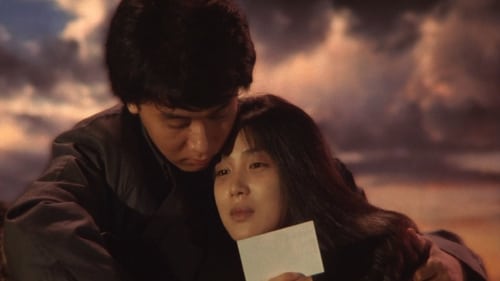
Old Man
카타자와가의 네 자매는 부모님이 돌아가신 후 쿄토의 철학의 길 근처에서 살고 있다. 그러던 어느 날 장녀 아야만이 키타자와가의 아이일 뿐 다른 세 자매는 시설의 경영 부진으로 보모를 하고 있던 키타자와 치요에게 맡겨진 것이라는 사실을 알게 된다. 네 자매의 사랑과 청춘을 그린 오요야마 카즈에의 동명 만화를 오바야시 노부히코 감독이 영화화하였다. 일본 드라마를 좋아하는 관객이라면 1999년부터 방영되고 있는 일본판 CSI 〈과수연의 여자〉의 주인공 사카키 마리코를 연기하는 사와구치 야스코의 20대의 풋풋한 모습에 놀랄 것이다.

Moelle (voice)
In this Japanese animated film, Sea Prince and Fire Child are two youngsters in love who flee from their disapproving parents into a world filled with risks and adventure.

Toshishun
The Chinese tale of a poor young man. His mother married to the cruel king of the state and he wants to take his mother back. One old man comes from the heaven and makes his three wishes come true.
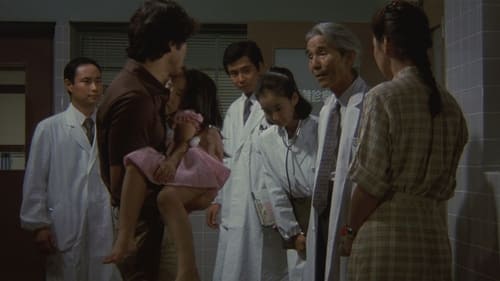
Doctor
"떨리는 혀"는 일본 기준 쇼치쿠(松竹)의 배급으로 1980년 11월 22일에 개봉한 상영 시간 114분의 일본 영화입니다. "미키 타쿠(三木卓)"의 동명의 소설을 원작으로 하고 있습니다. "미키 타쿠"의 원작 소설 교외의 단지에서 평온하게 살아가는 한 가정의 딸아이가 파상풍균에 감염되면서 전염의 공포에 전율하며 싸워 나가는 이야기를 그린 작품입니다.

Tragedy about a terminally ill girl.

Ikenouchi Seikan
Tora-san arrives in Shibamata on Mitsuo's first day of school only to find that on his account, Mitsuo was embarrassed. After a fight with his family, he goes to a bar to drink, then brings home a surly old man with a sad story, whose identity will surprise everyone. Later, Tora meets Botan, a geisha.
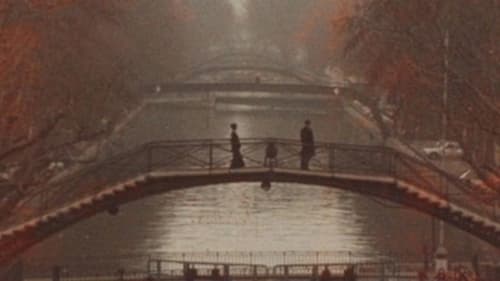
Tappei Yabuki
An industrialist is diagnosed with terminal cancer. He is on a trip to Europe at the time, and a glimpse of a Japanese woman in that setting causes him to fantasize about her as the personification of his impending death. As his dialogue with his imagined mortality continues, he actually meets the living woman who is the template for his fantasy, and together they tour rural churches. Gradually he comes to some kind of peace about the diagnosis. When he returns to Japan, he is met with a series of challenges which profoundly test the lessons he has learned.

Tappei Yakubi
An industrialist is diagnosed with terminal cancer. He is on a trip to Europe at the time, and a glimpse of a Japanese woman in that setting causes him to fantasize about her as the personification of his impending death. As his dialogue with his imagined mortality continues, he actually meets the living woman who is the template for his fantasy, and together they tour rural churches. Gradually he comes to some kind of peace about the diagnosis. When he returns to Japan, he is met with a series of challenges which profoundly test the lessons he has learned.
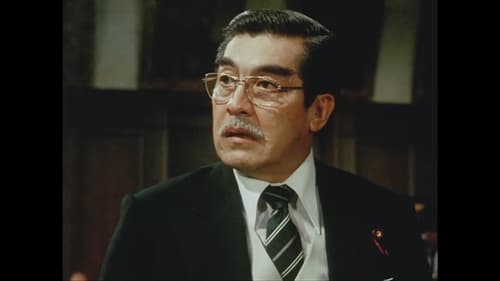
Sankichi Ishihara
호시노 관방장관의 비서가 2억엔을 빌리러 금융왕 이시하라를 방문하지만, 이시하라는 바로 거절한다. 이시하라는 이 관방장관을 신문기자 후루가키에게 조사하도록 시킨다. 후루가키를 통해 현 정부의 부패를 알게 된 이시하라는 가미야 의원을 통해, 국회 결산 폭로하려고 하지만, 가미야의 배신으로 결국 후루가키는 살해되고, 이시하라는 세금 탈세로 붙잡히게 된다.
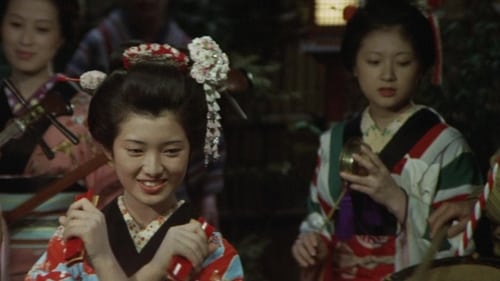
Narrator (voice)
While vacationing in the Izu peninsula, a high school student Kawashima becomes intrigued by Kaoru, a pretty young dancer in a troupe of travelling performers, and he tags along with them on their journeys.

Narrator (voice)
Based on a true story, an elderly woman resiliently spends nine months attempting to retrieve her husband's dead body, fighting government bureaucracy and indifference all along the way.

Kyoko's father

Shigeo Miyaji
A film set in Nagasaki examining prejudice against atom bomb victims.

Otowa is a former Seto Inland Sea island farmer who has moved to the mainland in order to find work, but instead ends up dead. The film begins with the discovery of her corpse, which leads to an investigation that uncovers the narcotics, prostitution, and murder in which many poor farmers had found themselves trapped after World War II.

Mori
Kitagawa is an engineer charged with construction of a gigantic tunnel through the Japan Alps for the transportation of equipment in the building of the massive Kurobe Dam. The tunnel crosses an earthquake fault and Kitagawa is beleaguered not only by cave-ins and flooding, but by strife between management and the workers's union. Adding to Kitagawa's stress is the knowledge that as his attention is pulled inexorably toward the tunnel construction, his youngest daughter is dying from leukemia.

Romance about student-nurse interns.

Narrator (voice)
aka Libido.

Nobuyuki Noda, Ken's uncle
During a Soviet circus tour in Japan, a small street musician, Ken, meets a clown, Yuri Nikulin. Upon learning that his sick father is being treated in the Soviet Union, Ken sets off in search of him. The friendship of the great clown and the boy continues in Moscow.
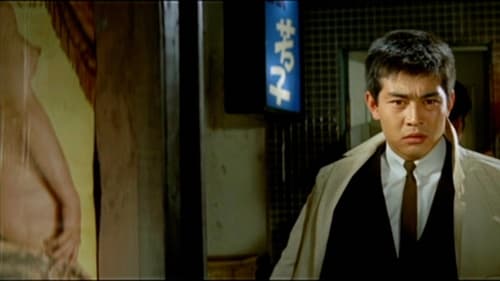
Kensaku Kokubu
A remake of the 1957 classic "Man Who Raised a Storm" with Watari Tetsuya in the title role.

Doctor
A well-respected drama teacher confesses to his housekeeper that the atomic bombing of Hiroshima has left him impotent. With the coming of spring, the sympathetic housekeeper suggests that the Master observe the Yobai , a custom in which the young men of a village steal into the bedrooms of susceptible women to have sex.
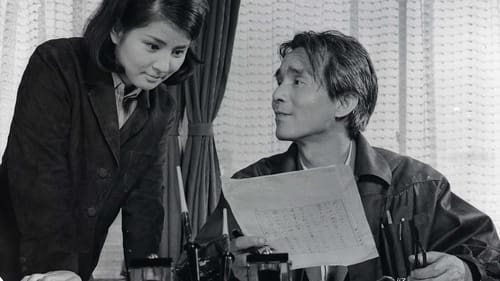
Hanai

A film dealing with the trials and tribulations of a primary school before and after the Pacific War, set in Fukashima Prefecture.

Provincial 14th century governor Moronao, attracted to the wife of a court magistrate, tries to seduce her and when she rejects his advances plots to send her husband into battle.

Heartwarming story of an ambitious girl who becomes a concert pianist with the help of her musician father.

Akiyama
When a US army sergeant is found drowned in Tokyo Bay, an investigation is launched to determine how and why he lost his life. The investigation uncovers a black market scheme involving counterfeit money, murder, and conspiracy.

Narrator (voice)
A fascinating glimpse of the Tokyo Paralympics Games of 1964 and the pioneering athletes who participated in them.

Shingo Kazami
Japanese drama film.
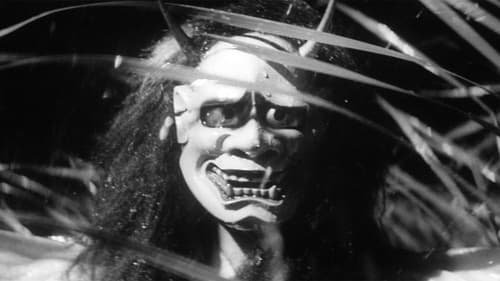
The Samurai
남자들이 모두 전쟁터로 끌려간 중세 일본. 시어머니와 며느리는 생존을 위해 함께 살아간다. 그들이 선택한 삶의 방법은 하이에나 같은 수렵이었고 대상은 인간이었다. 강을 타고 떠내려오는 사무라이 시체들의 장구류와 일본도를 벗겨 근처 동굴에 사는 노인네와 물물교환을 하고 그러다가 급해지면 살인도 한다. 두 명의 여인은 생계가 걸려있는 문제이다 보니 이러한 작업이 매우 능숙하다. 그러던 어느 날 시어머니의 아들이자 며느리의 남편 대신에 살아 돌아온 하치라는 남자가 등장한다. 그는 풀밭을 껑충껑충 뛰어다니고 고기도 터프하게 뜯어먹는 남자다. 죽은 남편에 대한 도덕적 신념과 성적인 욕망 사이에서 갈등하던 며느리는 결국 하치와 깊은 사랑에 빠지게 되고 시어머니는 우연히 그 사실을 알게 되어 복잡한 감정에 사로잡히는데...

A young girl knows that she is going to die and in this she is supported by the devotion of the boy who loves her. They originally met at the hospital. There it transpired that the only way to save her life was to sacrifice an eye and part of her face. The operation seems a success. Later, however, her other eye becomes affected. She feels she must let the boy go, and yet she depends so much upon his devotion.

An original warrior directed by Toshio Takagi, directed by Eisuke Takizawa of “Kiriko's Tango” by Toshio Yasumi, a comedy, cheerful widow. The photo was taken by Minoru Yokoyama from “Asakusa no Toko Odoriko Monogatari”

A boy who dreams of being a yakuza leader is reformed by a girl's pure love for him.

Japanese drama.
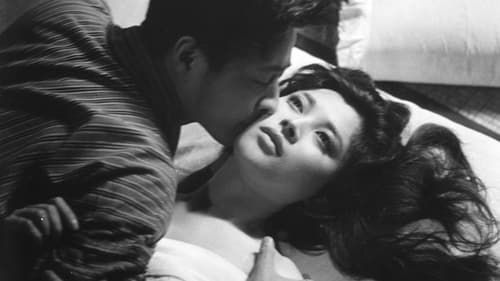
오카다 마리코가 직접 기획한 요시다 기주의 초기 대표작. 어느 온천여관을 배경으로 펼쳐지는 남녀의 사랑을 그리면서 물이 지닌 관능성을 빼어나게 보여주고 있다. 세상을 비관하여 자살하려던 청년과 그의 목숨을 구한 여관집 딸이 시간의 흐름을 두고 다시 만나는 순환적인 구조는 알랭 레네나 안토니오니의 영화를 떠올리게 한다. (2014년 한국시네마테크협의회 - 요시다 기주 + 오카다 마리코 특별전) 일본 남부의 한적한 온천의 만난 두 남녀의 17년 간에 걸친 사랑 이야기이다. 아름다운 풍경을 배경으로, 남녀간의 애정이 변하면서 이윽고 비극적 라스트를 향해 흘러가 끝내 죽음을 맞게 되는 과정을 훌륭한 영상미로 승화시켰다.
이 영화의 여주인공 오까다 마리꼬는 이 작품이 100회 출연 기념작일만큼 당시 인기 여배우였는데,신인감독인 요시다 요시시게를 지명하여 이 영화에 출연했다. 2년 뒤 두사람은 결혼했고,그녀는 남편이 된 요시다 감독의 작품에 다수 출연했다.
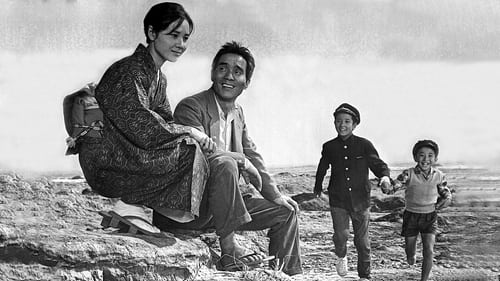
Little dark-eyed boy Kazuo. Yes, he dreamed of the sea. However, like everyone here in the village. Kazuo only wanted to study first, to finish school... But he failed. Mother died. The woman who replaced her brought with her affection, comfort, and warmth of mother's hands. It seemed that joy settled in their house again. But one day a storm caught the fishermen at sea. Father did not return... Father's friends, fishermen, tried to help the widow, who was left with two children. But the money was still not enough. And then Kazuo decided to become a fisherman. After all, he was now the eldest in the family...

Satsuo Yamamoto's filmic depiction of the famous 1949 Matsukawa Incident.

It's a story of the life of a man who advocated the necessity of sex education to children, which was unusual at the time, solely opposed to the amendment of the Peace Preservation Law, and was assassinated by a rightist prior to his opposition speech.

Yusaku Kasama
A young doctor falls into a despair of developments. He plans to revenge the disgrace inflicted upon his sister, whose engagement was broken as a result.

Director
The monologue and mysterious death of a man who survived and returned from Iwo Jima. A newspaper reporter writes an article about "The Man from Iwo Jima" asking the people who were close to him about his character and the painful memories off all those involved.

Drama which shows the struggle of Fumiko, a female teacher, at work and at home.

Manakichi Kuboyama
An ageing fishing boat, Dai-go Fukuryu Maru ("Lucky Dragon No. 5") sets out from the port of Yaizu in Shizuoka Prefecture. It travels around the Pacific line fishing. While the ship is near Bikini Atoll, the ship's navigator sees a flash. All the crew come up to watch. They realize it is an atomic explosion, but take time to clear their fishing gear. A short time later, grey ash starts to fall on the ship. When the ship returns to port the sailors have been burned brown. They unload the fish, which are then transported away. They visit the local doctor and then go to Tokyo for an examination. It turns out they are all highly radioactive. Their symptoms become worse, and the contaminated fish causes a panic.

Professor Sasaki

A youth lyrical painting depicting a sensitive young man with rich poetic feelings focused on the concerns and aspirations of a high school student.

Kenichi, who lives like a stray dog among fellow gangsters, finds his love for the first time while the police are trying to catch him on suspicion of murder.

A unique action drama in which a ruthless yakuza encounters a woman and realizes his true love as the conflict between the yakuza intensifies.

Director
Japanese suspense film.

Fisherman
Japanese suspense film.

A family is slowly falling apart: the father is absent from the start, the mother a kept woman thanks to her children, the son is being cheated on by his wife, one daughter is forced to marry an older man against her will, while the other has retreated into smug moral superiority.

The beauty of the Japanese family system is portrayed through the women who greet a woman who went to America thirty years ago to visit her grave.

Director
Two young Japanese schoolboys, one skinny and poor, one fat and well-to-do, become unlikely friends.

Based on Kakuko Mori's autobiography, about her life and retirement from acting due to her increasing blindness.

Japanese drama film.

Director
The story of a novelist whose wife is confined in a mental hospital. His love for her drives him to write about her, though he runs into trouble when her parents accuse him of cashing in on her misfortune.

The story of a novelist whose wife is confined in a mental hospital. His love for her drives him to write about her, though he runs into trouble when her parents accuse him of cashing in on her misfortune.

Kiichi
Based on the novel by Torahiko Tamiya.

Upon discovering that her father has a mistress, a young girl befriends the "other woman" and her child. Realizing that her half-sister is doomed to being regarded as an outcast, the heroine sets about to spiritually legitimize the girl.
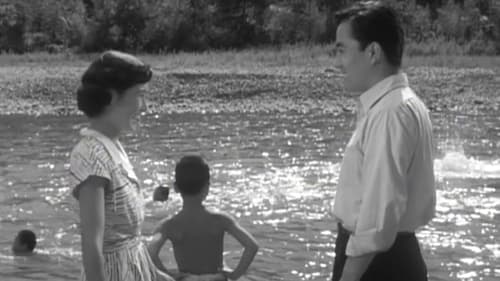
Across the Inagawa River that runs through the center of the village, the children of the two villages scrambled for a swimming pool, and each time a stone battle took place. Takemaru, the only son of the priesthood of Tada Shrine, was weak and was always forced to carry stones. However, neither swimming nor stone-throwing was a secret to his sick mother, Kouko... Seishi Matsumaru, Ryuichi Yoshida, and Ado Matsuyama were adapted from "Tenmangu" and "Ishigassen", directed by Mitsuo Wakasugi of "Waran Hayashi", and photographed by Hanjiro Nakazawa of "The Last Women".
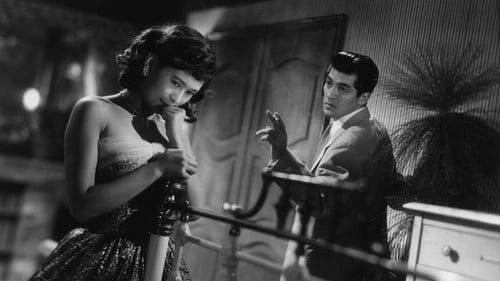
Nobuko is a widow who lives with her daughter-in-law Tamiko and her brother Junjiro. The family's gatekeeper, Komatsu, is attracted to Tamiko, but she is encouraged to marry a doctor and he is afraid to tell her his feelings.

Housewives from four neighboring households casually gather at an old well at Kaneko's house in a residential area on the outskirts of Tokyo. If two people come together, they will talk about selling kimonos, if three people come together, they will discuss food shopping, and when four people come together, there will be laughter. Focusing on four housewives who gather at the edge of the well, it depicts the daily life of each household.
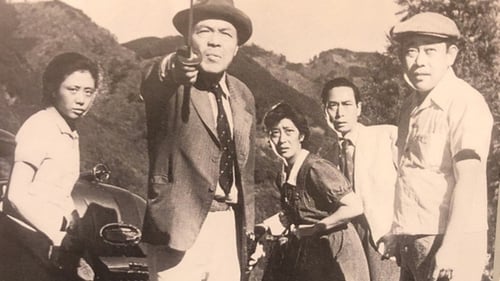
A group of five rookie insurance salespersons, driven to desperation by the impossibility of their work in Japan's failing postwar economy, form a plan to rob a cash delivery truck in order to provide for their families.
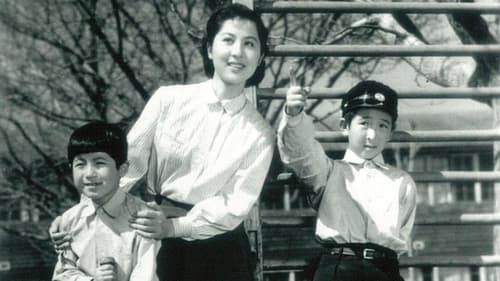
Professor Yamamoto
A university professor and his wife have two sons with infantile paralysis. Through trial and error, they struggle to open a school for disabled children at their own expense. Based on a true story, it features natural child performances under Hiroshi Shimizu’s skillful direction.

Shizuka, Eiichiro, and Mineko, their father and son, live modestly in a certain suburb, leading a dreary but happy life. Eiichiro is troubled by Shizuka's desire to live together in familiar Tokyo. Mineko is the exact opposite of Eiichiro. A literary masterpiece depicting the fateful sorrow and humor of a mother and child

Yasuichiro Isa, who works in the labor section of Sone Mining Tokyo Headquarters, paid a monthly fee for his younger brother, Reiji, who was in trouble because he had a bonus of 10,000 yen more.

The man is chased by losing the beauty and preciousness of love and the foundation of life without overcoming the hardship of life.
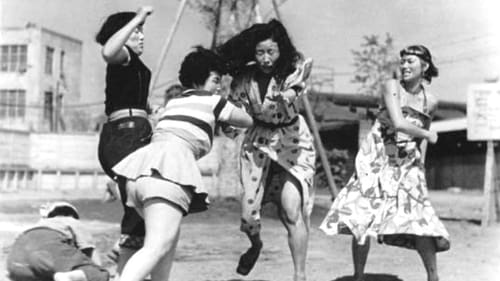
Toku, a factory worker gives food to a starving woman, Tsuru, who then follows him home. He shares a shack in a shanty village in Kawasaki with his friend Pin-chan. The two men try to get rid of her but then let her stay when she gives them money. Tsuru tells the people of the village that she lost her job due to a strike, then was robbed of her severance pay, then sold to a brothel in Tsuchiura. She ran away with a friend from Kawasaki. Toku and Pin-chan sell her to a geisha house and spend the money. She is thrown out. The owner demands his money back. Tsuru earns the money to pay their debt by working as a prostitute outside the station. The other prostitutes beat her. She fends them off with a policeman's revolver and is then shot dead by the police.
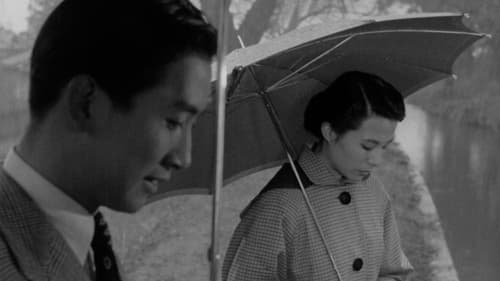
번역일로 먹고 사는 마유미는 결혼을 하지 않아 주위 사람들의 걱정을 산다. 마유미는 결혼 생각이 없다며 대답을 피하지만 사실 그는 오랫동안 한 여성만을 좋아하고 있다. 한편, 마유미는 우연히 만난 친구에게 새로운 일을 제안 받는다. 바로 미군과 사귀는 여성들에게 영어 편지를 대신 써주는 일이다. 기노시타 게이스케 감독이 각본을 썼으며, 다나카 기누요도 마유미의 고객으로 잠시 출연한다. 1954년 칸영화제 경쟁부문 상영.

Nobuko Otowa won the Blue Ribbon Award for the Best Actress for this among other films.

Film directed by Eichi Koishi and starring Wakao Ayako

Mr. Kimura
A young woman, who must support her father as a middle-aged man's mistress, finds herself falling in love with a student closer to her age.

Kohei Sakai

Ginzo
Ginko, a poor cobbler's daughter, becomes a geisha to support her family. She passes from one geisha house to the next, trying to find love and hope in the process. No matter how hard she tries, she just can't escape her sad fate.
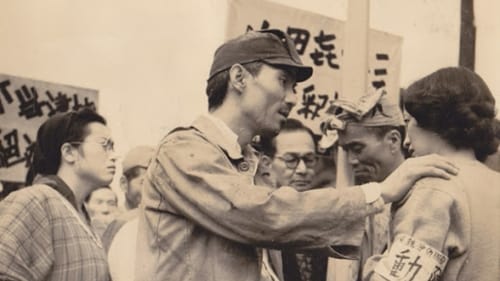
Kisaku Yamada
Onna Hitori Daichi wo Yuku (A Lonely Woman in a Lonely Land, Kinuta Production, 1953) was the second feature film directed by Kamei Fumio, who is known as a master of documentary films, and followed his “Haha Nareba Onna Nareba(Become a Mother, Become a Woman)” (1952).

Ichiro's dad
Japanese film.
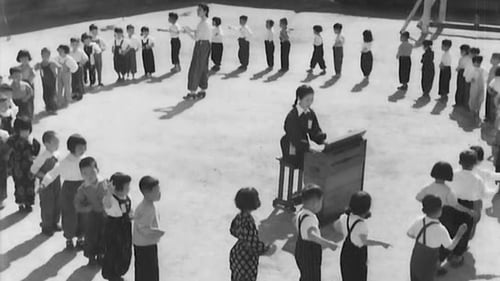
작은 섬의 학교에서 교편을 잡고 있는 다카코는 여름 방학을 이용하여 히로시마를 방문한다. 원폭 당시 유치원 교사로 일했던 다카코가 과거 자신이 가르쳤던 아이들의 소식을 듣기 위해 다시 히로시마를 찾은 것이다. 그렇게 아이들을 찾던 다카코는 길거리에서 우연히 예전 자신의 집에서 일했었던 이와키치 아저씨를 만난다.

A family of Kyoto textile workers struggles after tragedy.
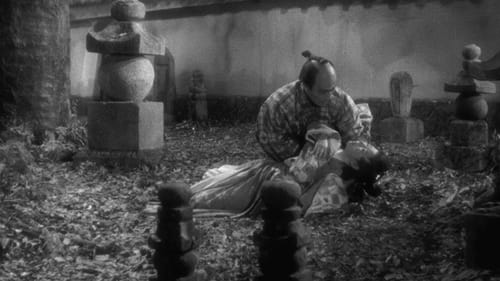
Yakichi Ogiya
영화는 늙고 추해져 남자들의 관심을 끌 수 없는 거리의 작부가 지난 자신의 삶을 되돌아보면서 이야기를 펼쳐낸다. 궁녀였다가 결국에는 매춘부로까지 전락하는 그녀의 지난한 삶의 과정들을, 미조구치는 그 특유의 유장한 스타일로 그려내며 거기에 불가사의한 초월의 분위기를 부여하려 한다.

Keita
Story of a Beloved Wife is an autobiographical work based on Shindo's first marriage. Jūkichi Uno stars as a struggling screenwriter, and Nobuko Otowa stars as the wife who supports him through his early struggles.
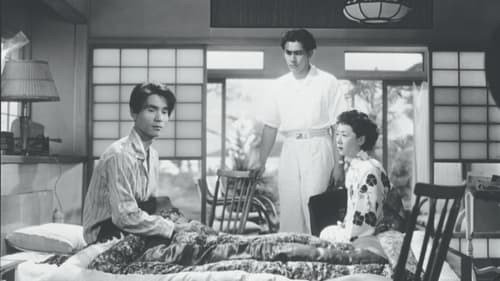
Michio Kuki
A jewelry store president begins to fall for the doctor treating her husband's illness.

The Angry Street includes a great deal of location shooting in the rebuilt city, including downtown streets, residential neighborhoods, the campus of the University of Tokyo, and the high life of jazzy dance halls. Sudo (Hara Yasumi) and Mori (Uno Jukichi) are two university students who make money by picking up rich girls in dance clubs and conning them into giving them cash. Mori is the brains of the operation, and Sudo is the suave dancer who picks up the girls. Over the course of the film, Sudo becomes involved with three different girls and is drawn into the gangster milieu, which he seems unable to resist even though he is responsible for his mother, grandmother, and sister, Masako (Wakayama Setsuko). In this world of bad boys and girls, Masako is the pillar of strength and moral virtue who finally enables Mori to straighten out.

Natsume
An attempt is made to suppress a journalist's investigation of collusion between a rural police chief and the local gangster bosses.
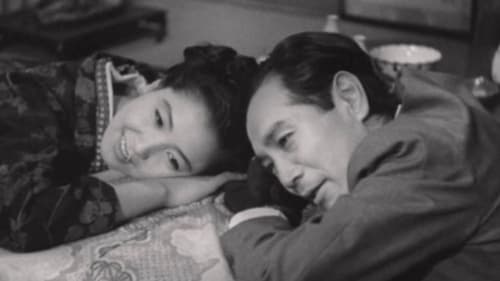
A joint project by Sojiro Motoki and Tomoyuki Tanaka, co-dramatizing the original story by Shu Sekikawa with Senkichi Taniguchi and Kenro Matsuura. The fur of a stray dog, the double-barreled gun tied to the backpack, the beard covered with tanned leather, and the bottom of the snow-burnt shining eyes, for the first time in thirteen years, these reached out to the bottom of society. Genji Iwaki dreamed of reuniting with his first love, Tsukie Shiina, with a huge amount of gold dust. To hand over half of the gold dust, he appeared in the memorable N city from the mountains of Teshio with the hope of seeing his late colleague's son, Ichiro Akutsu...

1950 Toho film directed by Senkichi Taniguchi

Shigeki Nonaka
When the future of his construction company falls into danger, a controlling father pushes his children into unsatisfying marriages and careers in order to regain financial stability.

Joji

Yomoshichi
Part 2 starts where the first film ended, with Iemon disposing of the bodies of his wife and Kohei, marrying upward, and being blackmailed by the evil Naosuke.
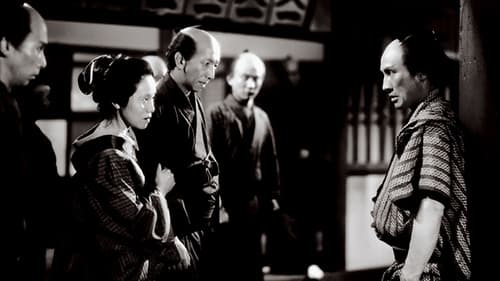
Yomoshichi
간교한 나오스케는 감옥에 있던 사람들과 함께 탈옥을 공모하였으나, 그 사실을 간수에게 몰래 알려서 탈옥을 실패하게끔 만들고 자신은 감형을 받아 출옥을 하게 된다. 고헤이는 연모하던 술집 작부인 오이와를 술집으로부터 꺼내 주기 위해 돈을 마련하려고 도둑질을 하다가 감옥에 갖혔지만, 탈옥 공모에 가담하지 않았기 때문에 다행히 목숨을 건질 수 있었다.한편, 오이와는 비록 술집 작부이긴 했으나 행실이 곱고 용모 또한 수려하여 술집을 그만두고 벼슬을 얻지 못한 낭인 무사인 이에몬과 혼인을 하여 살고 있었다. 어느 날 이에몬은 에도에서 가장 큰 쌀 도매상의 외동딸인 오우메가 치한들에게 봉변을 당하는 장면을 목격하고 그녀를 구출해 주게 되는데, 남자다운 그 모습에 오우메는 한눈에 반하고 만다.감옥에서 출옥을 한 나오스케가 마침 그 장면을 목격하게 되었고, 한탕 잡을 만한 거리를 찾고 있던 그는 이에몬을 오우메와 맺어 주기 위해 오이와와 이혼시킬 계략을 세운다. 이에몬은 출세를 위한 절호의 기회를 놓칠 수 없다는 생각에 나오스케의 계략에 동참하게 되지만, 워낙 우유부단한 성격의 이에몬은 차마 오이와를 버릴 수가 없어 번민한다. 보다 못한 나오스케는 결국 오이와를 죽이는 수밖에 없다는 생각을 굳히고 그녀를 독살해 버린다. 그러나, 출옥한 이후에도 오이와를 잊지 못해 그 주변을 맴돌던 고헤이가 그 장면을 목격하게 되어, 그도 역시 참혹한 죽음을 맞고 만다.한편, 오이와의 쌍둥이 동생인 오소데는 언니가 행방불명된 데 대해 의혹을 품고 진상을 파헤치고자 하는데...

Japanese adaptation of Marcel Pagnol's play "Marius", set in early XXth century Japan.
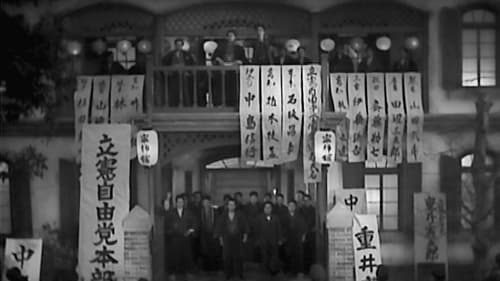
메이지 시대, 히라야마 에이코는 집안 하녀이자 친구인 치요가 팔려 가자 집을 뛰쳐나와 도쿄로 간다. 에이코는 자유당에서 여성 인권을 위해 애쓰는데, 당 지도자인 오모이와 사랑에 빠진다. 그런데 치요가 저지른 공장 화재 때문에 에이코와 켄타로도 체포된다. 몇 년 후인 1889년, 헌법이 공포되어 세 사람은 풀려난다. 그들은 자유당을 재발족해 활동을 시작하는데, 오모이는 더 이상 여성 평등을 위해 투쟁하지 않는다.
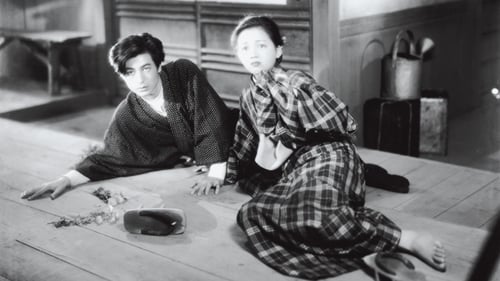
Ginnosuke Tsuchiya
A teacher at a Japanese school tries to hide his outcast upbringing.

Life and love in corrupt postwar Tokyo, as a young couple struggles against both the law and the mob.

Otomatsu
This film focuses on Koreans living in Japan. The filmmaker’s humanism comes across in the portrayal of a girl living in a shabby tenement, the warmth of a Korean girl she meets, and the friendliness of this Korean girl’s family.

Japanese propaganda film































































